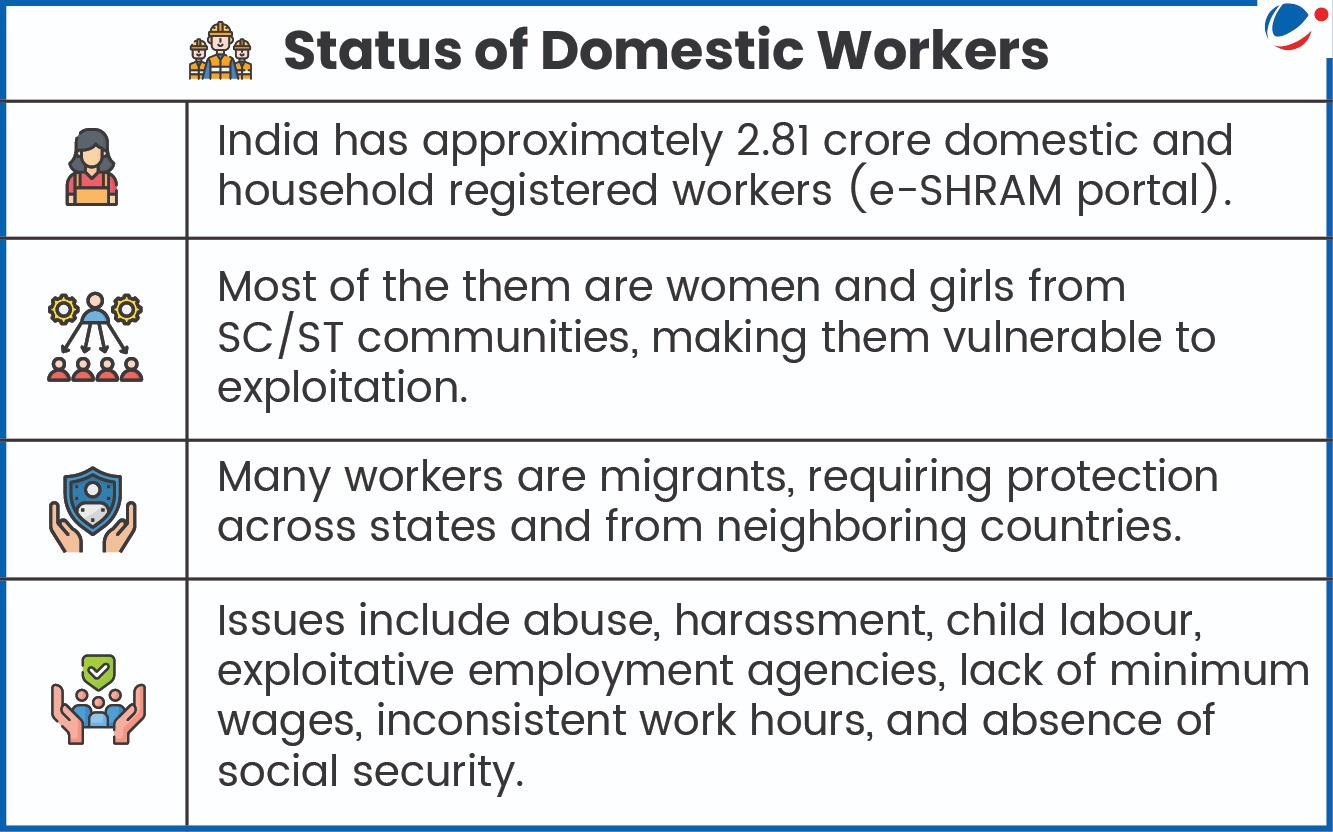As highlighted in the news recently, Union Government is yet to frame a comprehensive domestic workers’ rights law as directed by the Supreme Court in January, 2025.

Other Legal Frameworks Available
- Right to Fair Wages: Workers must receive at least the state-prescribed minimum wage under the Minimum Wages Act, 1948.
- Right to Safe Working Conditions: Employers must provide an abuse-free environment (POSH Act, 2013).
- Protection from abuse/exploitation: Bharatiya Nari Suraksha (BNS) Act, 2023 provides protection against all forms of abuse; enables legal remedies and complaint mechanisms.
- State-Level Initiatives: Tamil Nadu provides welfare benefits and minimum wages under the Manual Worker Act, 1982, while Karnataka’s 2025 Bill mandates worker registration, contracts, minimum wages etc. to a welfare fund.
Issues in Implementation of Legal Protection
- Patchy State Regulation: Minimum wages and labour protections vary across states; enforcement is weak.
- Exclusion under Labour Codes: Defines a “worker” in relation to establishments or industries, excluding workers employed in private households, such as domestic workers.
- Limited Organising: Dispersed workplaces, migratory status, poor socio-economicconditions, etc. make unionisation difficult.
- Data and Definition Issues: Lack of credible data and contested definitions of domestic work complicate policy-making.
Way Forward
|




